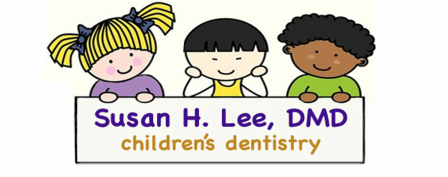Oral Care for the InfantCleaning your baby’s teeth should start at birth. You can start by gently cleaning the gums with a damp washcloth. Fluoridated toothpaste is not recommended until your child is able to rinse and spit. Until they are old enough, use an ADA approved fluoride-free toothpaste such as Baby Orajel Tooth and Gum Cleanser or Orajel.
|
Prevention of Early Childhood DecayIt is important not to allow your child to fall asleep with a bottle. Sugary drinks should not be given in a bottle. Diluting juice with water can help decrease the amount of sugar your child drinks. Children should be weaned from the bottle by 12 months of age. Encourage your child to drink from a cup by their first birthday.
|
Habits (Thumb, Finger, or Pacifier)Thumb and pacifier habits are normal and most children discontinue a habit by 2 years of age. If the habit persists at 4 years of age, the habit is more difficult to stop. A prolonged habit may affect the child’s bite. If the permanent teeth are affected, orthodontic treatment may be needed.
|
Baby's First Dental VisitThe American Academy of Pediatric Dentistry recommends “first visit by first birthday”. Getting an early start in your baby’s oral care is essential in the prevention of dental problems.
|
Healthy DietIt takes cavity causing bacteria, sugars and susceptible teeth to create decay. The bacteria utilize the sugars (starchy foods break down into sugars) to produce an acid which creates cavities in the teeth. Children who sip on juices and eat snacks frequently throughout the day are more prone to decay. This is due to the greater amount of time that sugars are exposed to the teeth. Setting aside a set time for the child to eat a meal or a snack is advised. Foods that stick to the chewing surfaces of teeth such as potato chips, crackers, and dried fruit should be given less frequently.
|
Keeping a Healthy SmileProper oral hygiene, healthy diet and regular visits to the dentist are ways to keep a healthy smile and prevent dental problems. It is important for parents to monitor their child’s brushing and flossing habits. Children younger than 8 years usually do not have the dexterity to brush and floss on their own.
Children, like adults, should visit the dentist on a regular 6-month basis to maintain a cavity-free smile. A professional cleaning and fluoride treatment will help in the prevention program. Sealants are also part of the prevention program. They are a protective coating that can be placed on the chewing surfaces of molars to prevent decay. If dental problems such as cavities arise, it can be detected earlier if a child has regular dental visits. Addressing dental problems early on can prevent oral disease and discomfort. Together, home and professional care will help in the prevention of oral problems and result in a great smile for your child. |
* The information provided on this page is for Educational Purposes Only and has not been designed to diagnose, treat or cure any health conditions. Please consult a qualified Health Care Professional and avoid self-diagnosis.

